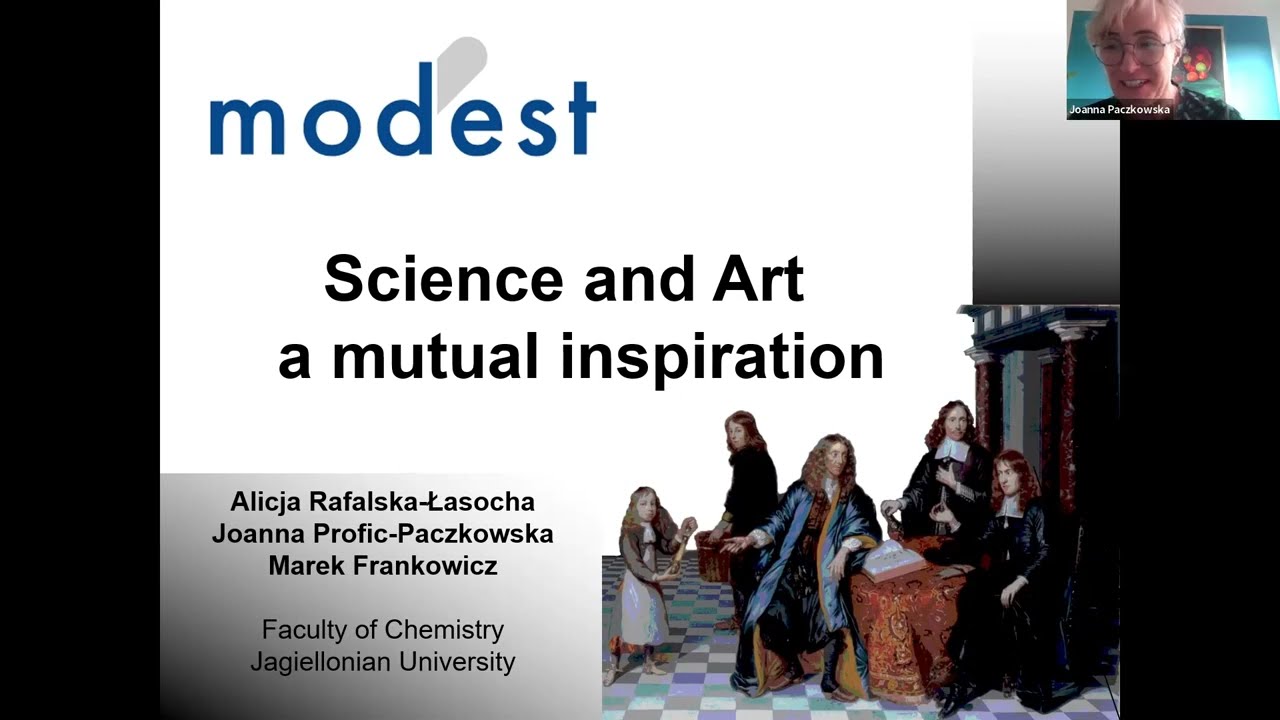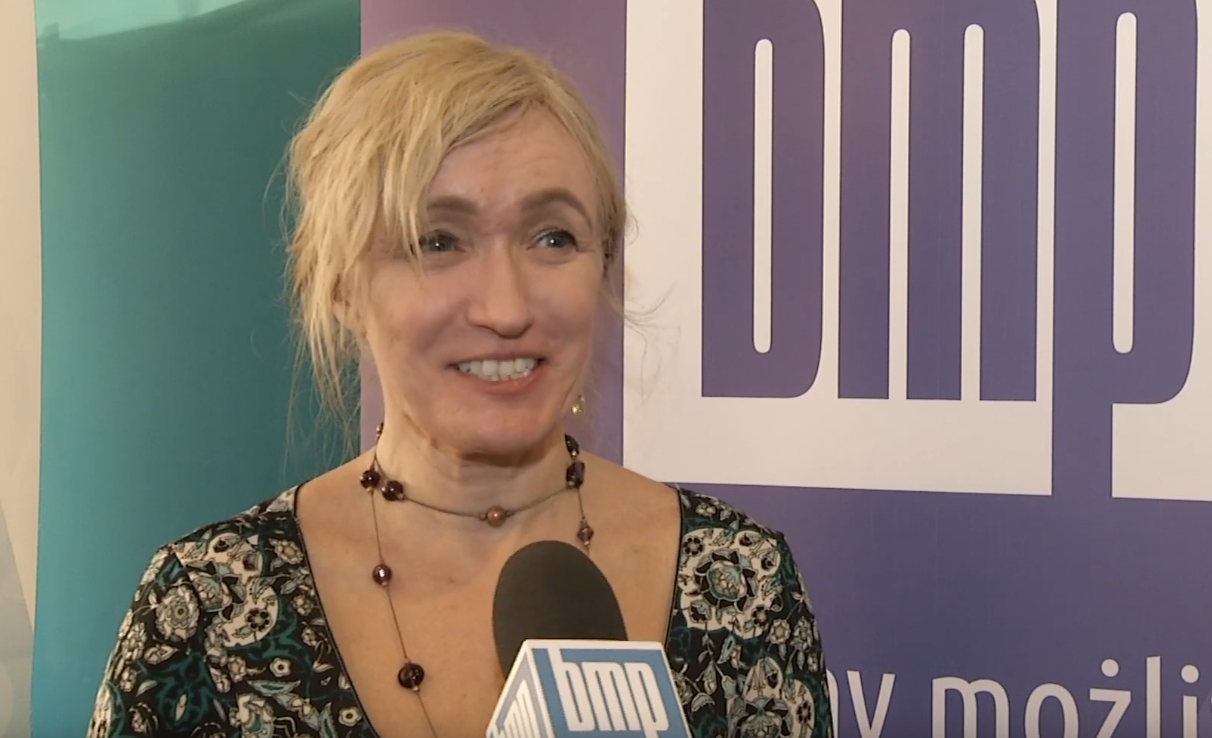The media about us!
Which means articles about our research group in national magazines, online and daily newspapers!
7-10 November 2022
Online Graduate School z Brunel University
November’s MODEST virtual session event held at Zoom, hosted by Brunel University London. The presentation entitled. ‘Science and Art – mutual inspiration’ is narrated by Prof Joanna Profic-Paczkowska from the Jagiellonian University.
Link to the event:https://shorturl.at/FJT56
6 March 2019
BMP Racibórz - Joanna Łojewska: Does methane utilisation make sense?
28 April 2018
Gazeta Wyborcza - What to choose: meat or vegetables? Here are the secrets of the art of barbecue

“And if meat, is it white or red? And at what temperature do you bake it so that it tastes good, smells even better and is healthy?” – Margit Kossobudzka’s interview with Joanna Łojewska
20 September 2016
Politika - The Wawel Castle tapestries under the magnifying glass
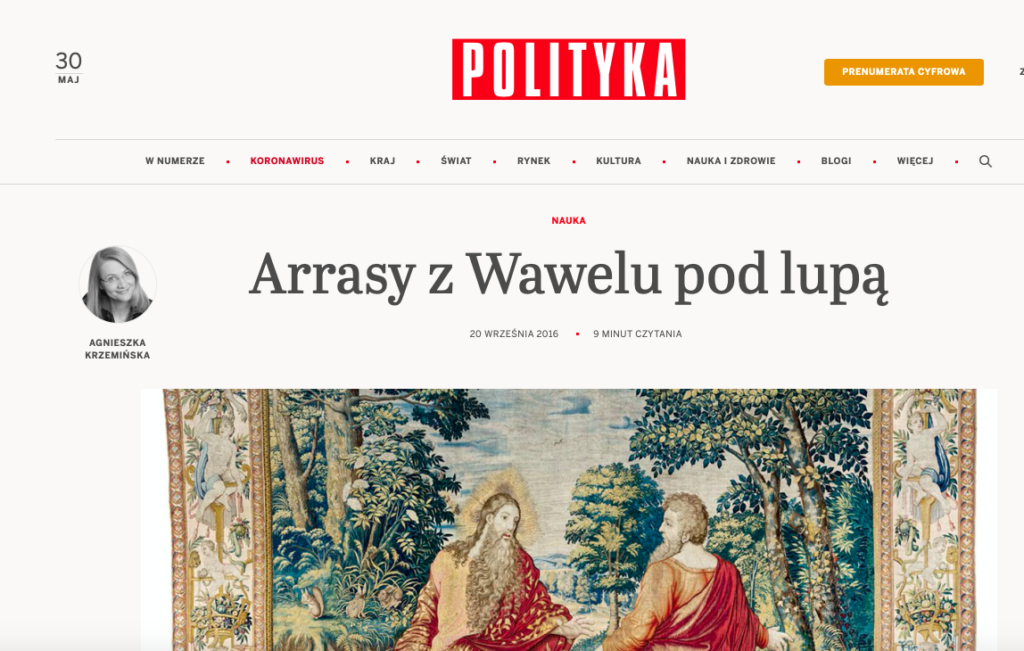
The Wawel Castle tapestries are more than 450 years old, and everyone wants them to live as long as possible. Chemists and physicists were asked what condition they were in and how to care for them. After the first series of tests, it is clear that they are fine at Wawel Castle, and that dirt is not their worst enemy. – article by Agnieszka Krzemińska
22 April 2016
Rzeczpospolita - special supplement "The Republic in the Times of Sigismund Augustus"
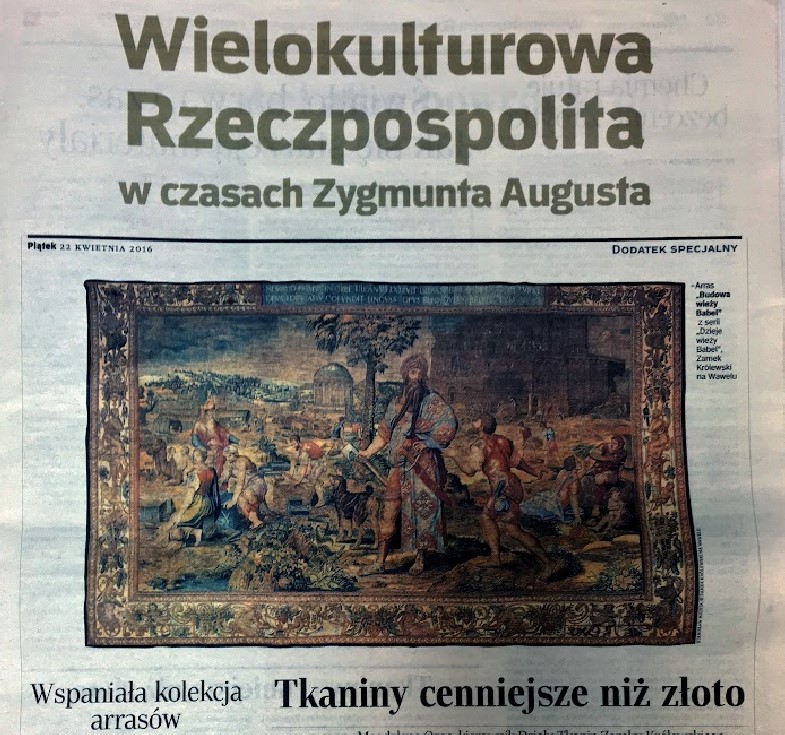
On Friday 22 April 2016, the Rzeczpospolita newspaper published a special supplement entitled ‘Rzeczpospolita w czasach Zygmunt Augusta’ dedicated to summarising the research and education project. In it, one can read articles by individual research groups involved in the study of degradation and the influence of biological and inorganic factors on the state of preservation of the Wawel Castle tapestries. Dr Joanna Łojewska’s article ‘Chemistry saves priceless monuments’ can be read by clicking on the thumbnails.
11 March 2015
wPolityce.pl - Scientists: "The coal management that Poland is doing is robbery. We should bet on coal processing"
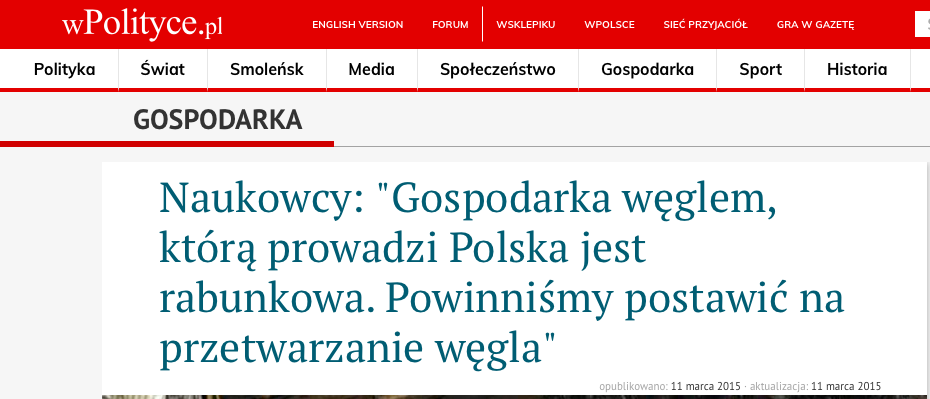
Coal was and still can be our black gold, but everything depends on how we use it
– say in an interview with ‘Gazeta Wyborcza’ the scientists Joanna Łojewska, PhD (chemist) and Krzysztof Bytnar, PhD (employee of the Department of Fuel Technology at AGH University of Science and Technology). The article appeared in wPolityce.pl
11 March 2015
Biotechnologia.pl - Catalyst Research Laboratory from the inside out
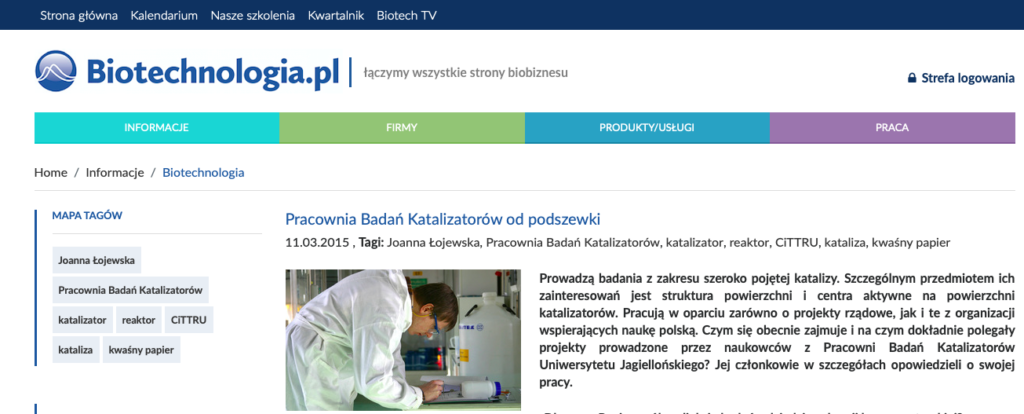
They conduct research in the broad field of catalysis. Of particular interest to them is the surface structure and active centres on the surface of catalysts. They work on the basis of both government projects and those from organisations supporting Polish science. What is the current focus and what exactly were the projects carried out by the scientists of the Catalyst Research Laboratory of the Jagiellonian University? Its members talked in detail about their work – article on the portal Biotechnologia.pl
12 December 2014
Dziennik Polski - Jagiellonian University chemist saves Leonardo da Vinci's famous masterpiece
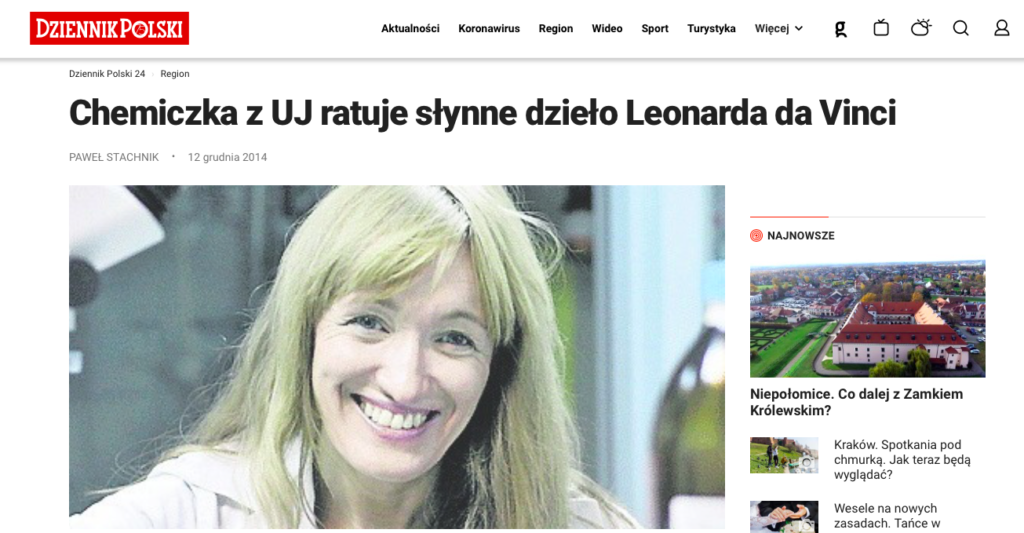
Science. Joanna Łojewska, Ph.D., has been included in an international team of scientists. They are working to prevent the destruction of the Renaissance master’s self-portrait – article by Paweł Stachnik
02 July 2014
Nauka w Polsce - Science in the service of art
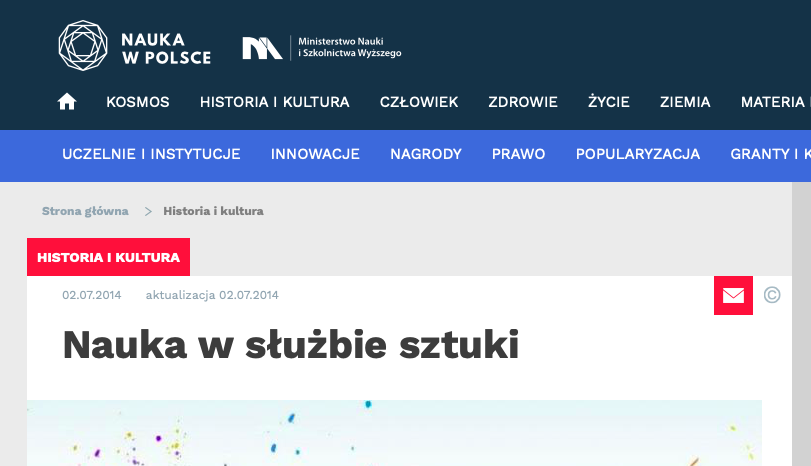
Researchers from the Jagiellonian University have developed a method to diagnose the degradation processes of paper and other cellulose-based materials. The research may help save monuments, including Leonardo da Vinci’s drawing, which is becoming less and less clear. – PAP article – Nauka w Polsce
21 November 2013
Gazeta Wyborcza - Prawdziwi z nas zadymiarze
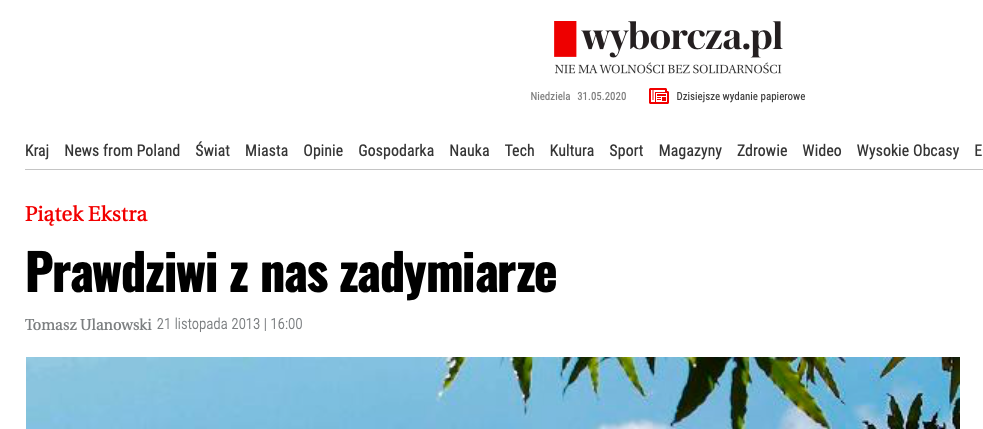
“Cancer, damage to the endocrine, respiratory, circulatory and nervous systems. And destruction of the environment, the effects of which will be visible long after the Homo sapiens species has disappeared. This is the price of burning anything in cookers”. – interview with Dr. Joanna Łojewska, chemist at the Jagiellonian University
1 August 2012
Gazeta krakowska - Fatal condition of the Wawel flags
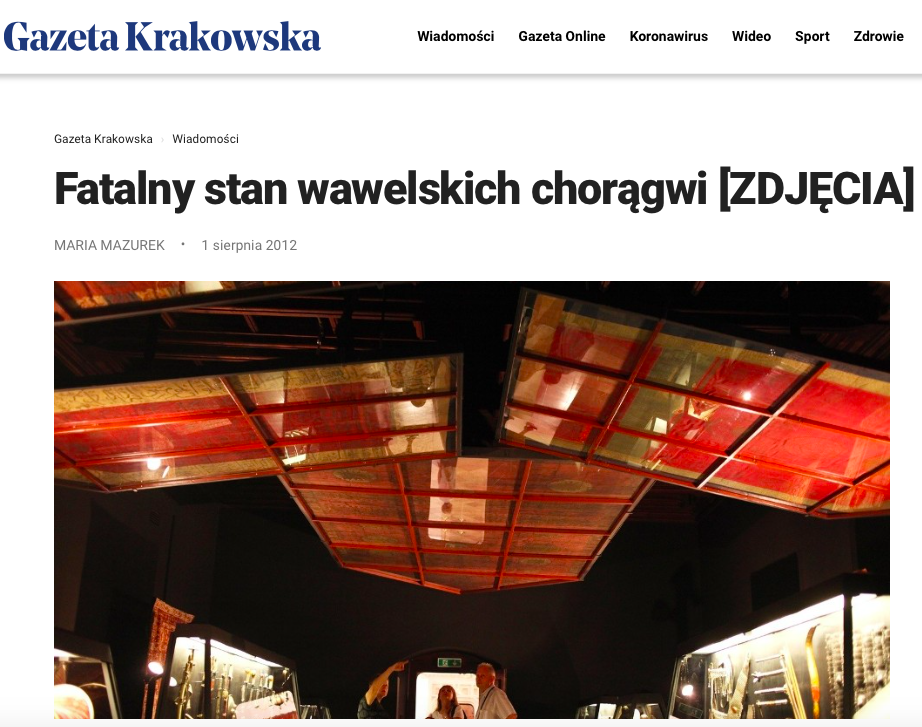
Either captured during the Vienna campaign or woven in honour of our rulers – the silk flags in the Wawel collection have witnessed our history for hundreds of years. Now they are damaged, frayed, some falling apart in the hands. The Royal Castle authorities and chemists from the Jagiellonian University want to save them for future generations.- article by Maria Mazurek for Gazeta Krakowska
17 June 2012
Gazeta Wyborcza - Great success of the Polish woman

Monika Koperska, a PhD student from the Jagiellonian University, won second place and the audience prize in the Famelab international competition – article by Piotr Stanisławski
24 May 2012
money.pl - Got Talent for Scientists. Why is paper better than a memory stick?
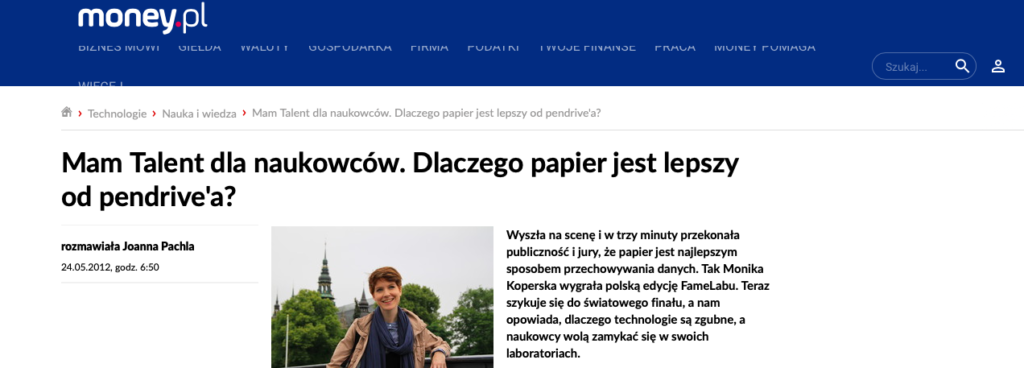
She took to the stage and in three minutes convinced the audience and jury that paper is the best way to store data. This is how Monika Koperska won the Polish edition of FameLab. She is now preparing for the world final, and tells us why technology is doomed and scientists prefer to lock themselves away in their labs. – interview by Joanna Pachla with Monika Koperska
22 May 2012
PAP - Monika Koperska a scientific idol in FameLab competition
Paper is the most durable information carrier we know. We can read it with the most common tools known to man: the brain, the eye and the hand,’ says the winner of the Polish edition of the FameLab competition, Monika Koperska of the Jagiellonian University. The competition for the first Polish scientific idol was decided at the Copernicus Science Centre during the Museums’ Night in May. – Polish Press Agency
24 września 2010
krakow.naszemiasto.pl - Kraków: foundation rewards mothers with a doctor

The Foundation for Science has awarded three mothers from Krakow with doctoral degrees high level funding for innovative research projects. The grants will make it easier for them to reconcile the difficult role of parent and scientist.- article by Marcin Leyko

